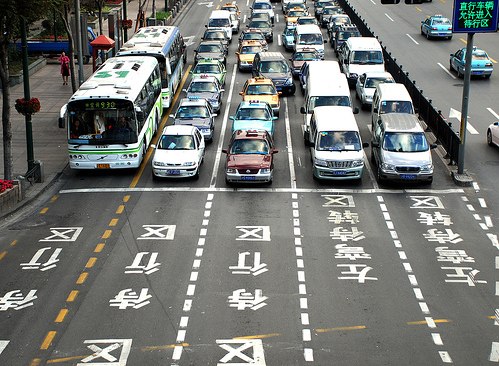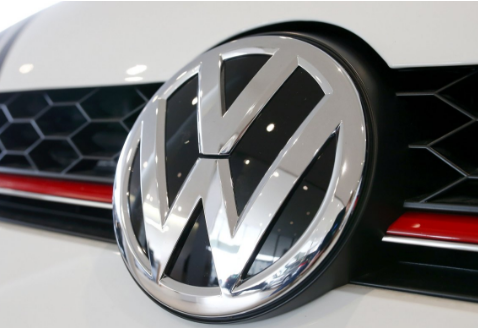Now Reading: China’s auto sales dropped in January mainly because of Coronavirus
-
01
China’s auto sales dropped in January mainly because of Coronavirus
China’s auto sales dropped in January mainly because of Coronavirus

China’s auto sales dropped in January, deepening a significant downturn in the industry’s biggest auto market and adding to economic pressures as the country battles Coronavirus, a virus outbreak.
Sales of SUVs, sedans, and minivans dropped 20.2% from a year earlier to 1.6 million, the China Association of Automobile Manufacturers (CAAM), reported Thursday.
“Enterprises are under huge pressure,” it stated.
The industry suffered the loss since Beijing’s decision to extend January’s Lunar New Year holiday so that the families could be kept inside at home and decrease the chances of the spread of coronavirus. This decision kept factories and dealerships closed.
Demand already was weak because of consumers anxiety about a tariff war with the US, and also because of slower economic growth. Sales dropped 9.6% last year, their second annual drop.
January’s sales decline looks even worse because of the timing of the holiday, when shops and factories were closed for two weeks. This year’s shutdown started in January, closing factories and dealerships even before the anti-disease controls, whereas the last year’s holiday didn’t start until February.
February sales normally would look stronger as the holiday has ended, but automakers have yet to resume production halfway through the month. The public has been informed to avoid crowds, keeping consumers away from dealerships.
“In the short run, auto production and sales will be greatly affected,” CAAM stated. “The components supply system will be disrupted.”
Losses to the Chinese industry because of the most sweeping anti-disease measures ever imposed are expected to be so huge that forecasters are not expecting growth for this year.
The sales decline is a blow to worldwide automakers that are counting on China to drive earnings amid stale demand in the United States and Europe.
China represents 27% of global auto production, increasing from 7% in 2003, according to UBS.
The extended closure of factories is disrupting the global flow of auto components as well. China’s share of worldwide exports of auto parts is about 8%, increasing from 1% in 2003, according to UBS.
The decline is squeezing earnings for global and Chinese vehicle brands at a time when they are investing billions of dollars to develop electric vehicles under pressure to fulfill government sales targets. Some automakers are also working on self-driving vehicles.
Sales of electric and gasoline-electric hybrid passenger vehicles dropped 54.5% in January to 39,000, CAAM noted.
Stay Informed With the Latest & Most Important News
Previous Post
Next Post
-
 01Polestar Boss Says It’s Time To Outrun BMW M And Mercedes-AMG
01Polestar Boss Says It’s Time To Outrun BMW M And Mercedes-AMG -
 02Spy Shots: 2027 Mitsubishi Pajero Spotted in Testing Ahead of Possible U.S. Return
02Spy Shots: 2027 Mitsubishi Pajero Spotted in Testing Ahead of Possible U.S. Return -
 032026 Toyota Hilux EV: A Powerful Truck with Silent Torque
032026 Toyota Hilux EV: A Powerful Truck with Silent Torque -
 04Spy Photos: VW ID. Polo GTI Goes Electric with 223 HP and 280 Miles of Range
04Spy Photos: VW ID. Polo GTI Goes Electric with 223 HP and 280 Miles of Range -
![2027 Mercedes-Benz S-Class Debuts with V8 Engine [Photo Gallery]](https://speedlux.com/wp-content/uploads/2026/01/2027-Mercedes-Benz-S-Class-33-155x125.jpg) 052027 Mercedes-Benz S-Class Debuts with V8 Engine [Photo Gallery]
052027 Mercedes-Benz S-Class Debuts with V8 Engine [Photo Gallery] -
 06The Controversial Ford Voodoo V8 That Was Killed Off Too Early
06The Controversial Ford Voodoo V8 That Was Killed Off Too Early -
 07Hyundai Palisade’s Breakout Year Shows How Quickly the Market Can Turn
07Hyundai Palisade’s Breakout Year Shows How Quickly the Market Can Turn



![2027 Mercedes-Benz S-Class Debuts with V8 Engine [Photo Gallery]](https://speedlux.com/wp-content/uploads/2026/01/2027-Mercedes-Benz-S-Class-33-700x394.jpg)








































